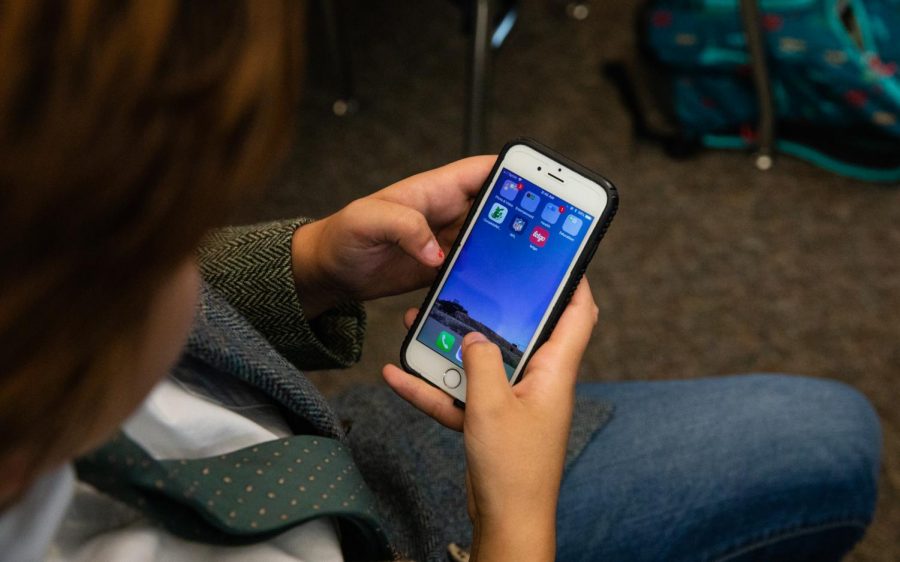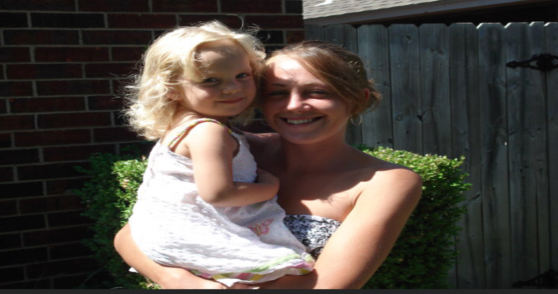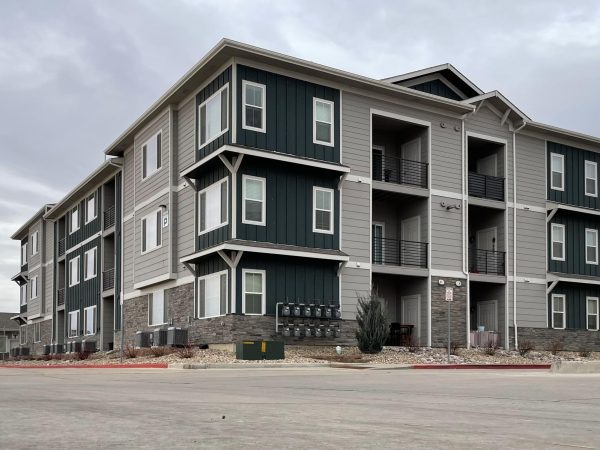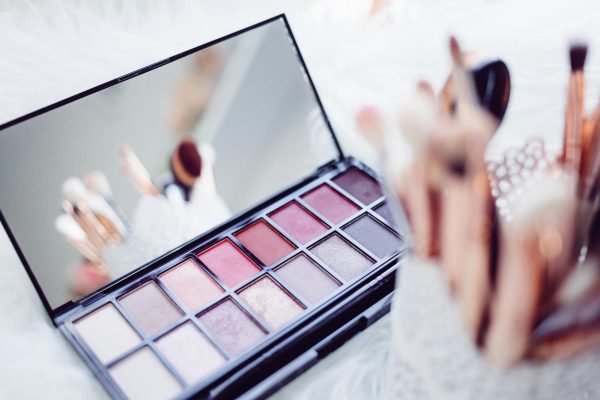The “no-tolerance” cell phone policy explored
An in-depth exploration of the new cell phone policy at Mead High School
September 18, 2018
As of 2018, Mead High School administration has implemented a new “no-tolerance” cell phone policy. According to Mrs. Schwartz, an assistant principal, the intentions behind this policy are simply to create “more focused learning” and to eliminate distractions.
The new policy technically has no formal guidelines. “At the beginning of the year we told teachers that they could either automatically have students put their cell phones in the caddy,” says Mrs. Schwartz, “or they can just tell students ‘your phone needs to be out of sight’.”
The lack of consistency throughout classrooms may not be favorable, but it gives teachers the freedom to handle the issue how they see fit.
As expected, the new cell phone policy has brought frustrations among many students. Several freshmen have had different reactions based on the rules at their previous school. “[Teachers] let you have your phone on you,” says Zion Elznic, who went to Timberline Middle School. The policy from Timberline seems less harsh than the one implemented at Mead, so Elznic is probably not used to having his phone in a cubby or away from his reach. However, the new cell phone policy might seem far more lenient to Rathan Dujardin, who was accustomed to having his phone in a locker all day at Imagine Charter School.
It’s different for Julia Keon, a senior, who recalls “Freshman year not much was done about phones in class,” and now says, “I feel like cell phone cubbies were kind of a waste of money because teachers can just take our phones away for free.”
Junior Abi MacPhail feels very strongly about the cell phone policy. “This is so stupid,” said MacPhail, who feels that her cell phone is her personal property and teachers don’t have the right to take it away from her. MacPhail also believes that the cell phone policy could end up being an issue to student safety. “What if there’s an emergency? Then I can’t call my mom,” she pointed out.
The issue of student safety is no surprise to Dujardin, who experienced something unique while at Imagine Charter school. “We were all in class, and my principal got over the intercom and said, ‘There’s been a gas leak, you all need to evacuate.’” Dujardin put his phone away in his locker so as not to get in trouble, but then was left without a means of contacting his parents in this state of emergency.
Mental health emergencies are also a concern—especially among teenagers—and not having your phone as an outlet to seek help can be concerning. MacPhail experienced this firsthand while at volleyball practice. She needed to call someone and her coach allowed her to step outside and make the call. “If I had asked to do that in class they would have said, ‘Absolutely not.’ Not being able to take care of things right away is a huge problem for me.”
“Parents are always supportive,” said Mrs. Schwartz on how parents feel about the policy. She knows that parents want productive learning in class too, and believes that the cell phone will truly provide that for students. Parents do, however, have many of the same concerns that students have and understand the policy can be unreasonable in the world we live in. “My parents feel that the cell phone policy is unfair and unrealistic,” says sophomore Madi Nagy. “In the real world, technology is always going to be around you, and to completely hide it is unrealistic.”
Technology is clearly a major influence in today’s society, the Saint Vrain Valley School District has adopted iPads as a learning tool in classrooms. Mrs. Schwartz calls them an “equalizer” and argues that the use of iPads can replace the use of cellphones in class.
Administration has made it clear that phones are not allowed in classrooms nor are they necessary. Students and some parents, however, might not agree with the policy and this could open doors for conflict in the future at Mead High School.













Minda Morton • Jun 13, 2019 at 7:12 am
I teach in an alternative high school with a very high population of students with behavioral and academic challenges, along with unhealthy attachments to their cell phones. We have experienced a great deal of learning disruption as a result of rumors, gossip, bullying etc. via texting and social media. I am to the point where we either develop, implement and enforce a reasonable cell phone restriction policy or I will resign. I am just not willing to go through another year like this one! I will be lobbying for a system where phones are placed in a holder behind my desk at the start of the period every day. They are accessible in an emergency (a FAR less likely occurrence than the drama noted above), but won’t be a distraction or disruption during class. I know that my perspective is somewhat skewed since such a high number of my students are in the worst syndrome of what phones can do to students but these kiddos are at the end of their opportunity to obtain a solid education and earn a diploma and that is my primary concern.
Jenna Jameson • Oct 4, 2018 at 7:30 am
I like how you talked to so many people that went to different middle schools to get a different point of view that many people at our school haven’t heard of before.
Aiden Owen • Oct 4, 2018 at 7:24 am
From a student’s perspective, I agree that automatically putting the phone in the holders is very dumb, but if someone has been warned several times, then it is acceptable.
On the other hand, I do agree that phones are a distraction and having them on the desks is distracting.
Rachel Long • Sep 20, 2018 at 12:35 pm
As both a parent and an employee, I think the cell phone policy is very fair. The cell phones are easily available from the caddies in an emergency. I can see how easily students can be distracted during class. This allows them to have one less distraction while focusing on learning. I do feel your article is well balanced. Good reporting!